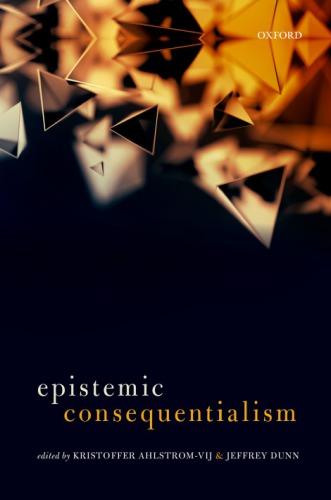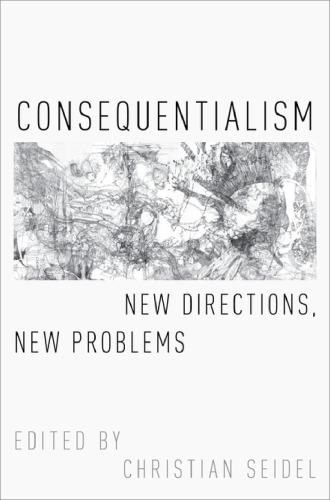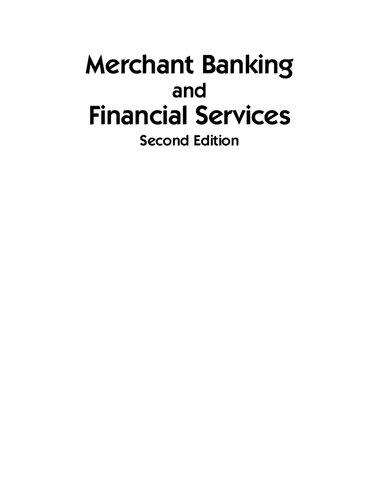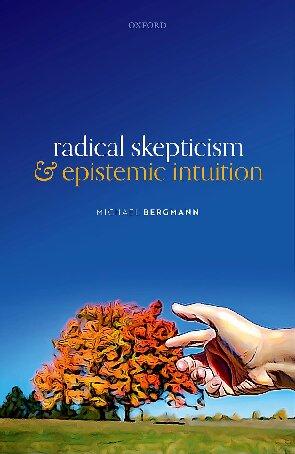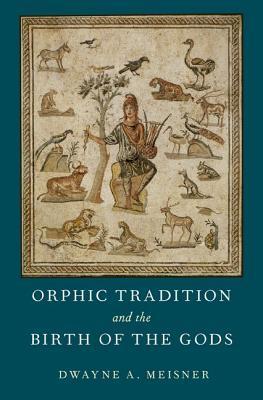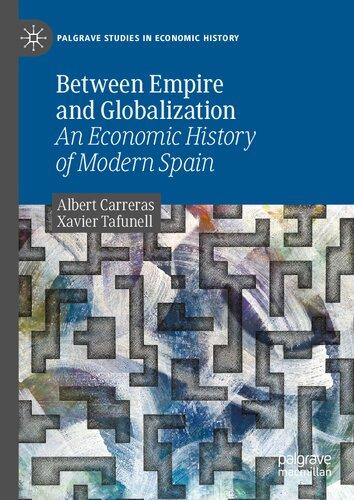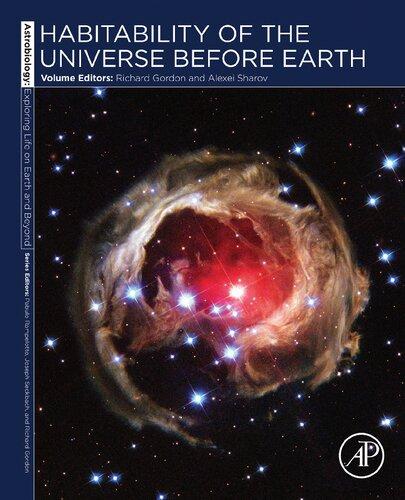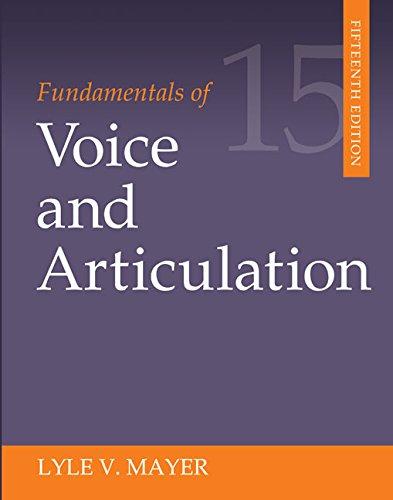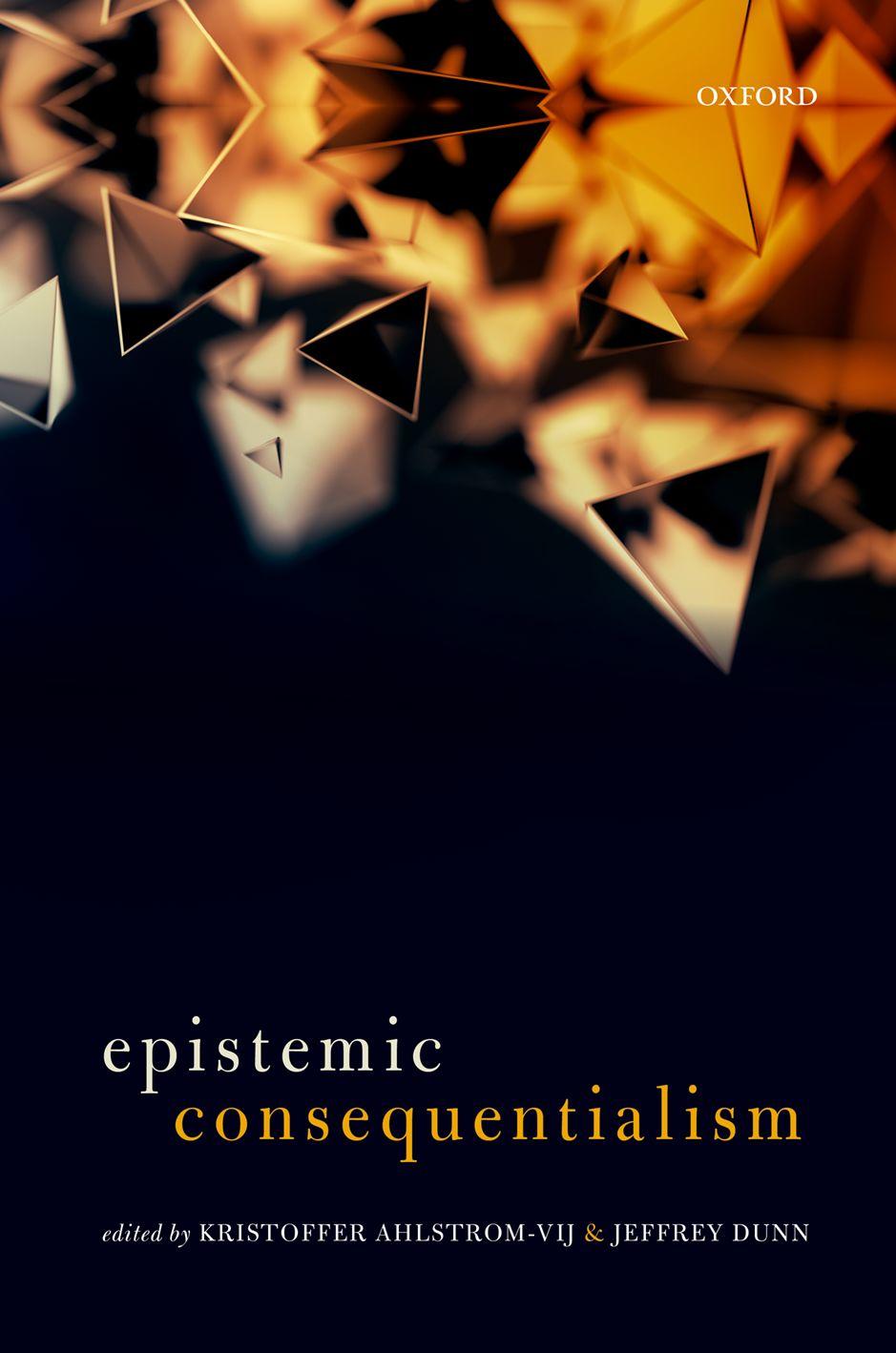Introduction
EpistemicConsequentialism
JeffreyDunnandKristofferAhlstrom-Vij
0.1Consequentialism:MoralandEpistemic
Whatmakesanactionrightorwrong?Oneofthemostinfluentialanswersover thepastcoupleofcenturiesisthatofthe consequentialist.Thereareavarietyof consequentialistviewsandthereareavarietyofwaysofstatingpreciselywhatitis foraviewtocountasconsequentialist.Nevertheless,consequentialistsagreethat,in somesense,rightnessistobeunderstoodintermsofgoodness.Actutilitarianismis perhapsthemostwell-knownversionofconsequentialism.Accordingtosuchaview, anactionisrightifandonlyifnoalternativetothatactionhasasetofconsequences withgreatertotalvalue.Themostfamiliarversionofsuchaviewisofthehedonist variety,wheretotalvalueisunderstoodaspleasureminuspain,1 thoughofcourse thereareotheraccountsofvalue.Butnomatteryouraccountofvalue,itisvaluethat comesfirst,andspecificallythevalueofconsequences,sincerightnessofactionson thisviewisdeterminedbythevalueofthestatesofaffairsthatactionsleadto.
Noticeseveralothercommitmentsofactutilitarianism.First,itmaintainsthat rightnessisdeterminednotjustby some oftheconsequencesofactionsbutbythe total setofconsequences.Second,itmaintainsthatrightactions maximize thevalueofthe consequences.Finally,itis,wemightsay,a direct versionofconsequentialisminthat therightnessofanactionisdeterminedby its consequences(relativetoalternatives). Notallviewsthathavebeensaidtobeinstancesofconsequentialismsharethese features.Wecan,forexample,imagineaformofethicalegoism,whereactionsare rightwhenmaximizingthegood fortheagentherself.Suchaviewmightnotbe particularlyplausibleasanethicaltheory,butthatdoesn’tpreventitfromqualifying asaconsequentialistview.Asforthesecondpointabove,satisficingconsequentialism doesnotrequiremaximizing:rightactionsmusthaveconsequencesthatarevaluable abovesomenon-maximalthreshold.2 Andasforthefinalpointabove,noticethat
1 Seee.g.,Mill(1861/2001)andFeldman(2004).
2 See,e.g.,Slote(1984).
ruleconsequentialismisnotdirect:rightnessofactionsdependsonwhetherthey conformtorightrules,wheretherightnessofrulesdependsontheconsequencesof thewidespreadadoptionofthoserules.3 Itiscontroversialwhetherthesevariations renderthecorrespondingviewsnon-consequentialist.4 Butnotethattheseviews stillagreethatrightnessisunderstoodintermsofgoodness,andthegoodnessof consequencesinparticular.5
Despitestrongandfrequentresistancefromdefendersofnon-consequentialist moraltheories,manyhavefeltthatconsequentialism—specificallyutilitarianism— hasdominatedthedebate.CitingT.M.Scanlon’s(1982)puzzlementoverutilitarianismoccupyingsuchacentralposition,despitebeing‘wildlyatvariancewith firmlyheldmoralconviction’(p.103),PhilippaFoot(1985)famouslywrotethat‘itis remarkablehowutilitarianismtendstohaunteventhoseofuswhowillnotbelievein it.Itisasifweforeverfeelthatitmustberight,eventhoughweinsistthatitiswrong’ (p.196).Indeed,accordingtoChristineKorsgaard(1996),‘tolatergenerations,much ofthemoralphilosophyofthetwentiethcenturywilllooklikeastruggletoescape utilitarianism’(p.279).
Meanwhile,muchofcontemporaryepistemologyhasbeenmarkednotsomuch byastruggleasbyatacitendorsementof epistemicconsequentialism,theideathat epistemicrightness—denotedbytermssuchas‘justification’or‘rationality’—isto beunderstoodintermsofconducivenesstoepistemicgoods.Manyepistemologists, forinstance,havebeenattractedtotheideathatepistemicnormsthatdescribe appropriatebelief-formingbehaviorultimatelyearntheirkeepbyprovidinguswith somemeanstogarneraccuratebeliefs.Andaccuracyisplausiblyanimportant kindofepistemicgood.Hence,wehaveepistemicrightnessunderstoodintermsof conducivenesstoepistemicgoodness.
However,itisimportanttobeclearthatnothinglikeactutilitarianismhasgained anywidespreadadherentsinepistemology,muddyingthecomparisonbetween moralandepistemicconsequentialism.Anepistemicversionofactutilitarianism wouldpresumablybethefollowing:abeliefisjustified(orrational)justincase thetotalcausalconsequencesofholdingorformingthatbeliefcontainmore epistemicgoodthanthetotalcausalconsequencesofholdingorformingany alternativebelief(orlackofbelief).Thisviewwouldsurelydeservetobean instanceofepistemicconsequentialism,buttoourknowledge,noepistemologist
3 SeeHooker(2000).
4 Forexample,somemaintainthataviewisonlyconsequentialistifitdefineswhatrightorobligatedin termsofwhatwillmaximizevalue(e.g.,SmartandWilliams1973,Pettit2000,andPortmore2007).
5 Thereareotherwaystotrytostatewhatisdistinctiveaboutconsequentialism.Forexample,some maintainthataconsequentialistisonewhoiscommittedtoonlyagent-neutral,ratherthanagent-centered prescriptions(e.g.,McNaughtonandRawling1991).Stillothersmaintainthatwhatisdistinctabout consequentialismisthelackofintrinsicconstraintsonactiontypes(e.g.,Nozick1974,Nagel1986,and Kagan1997).Forageneraloverview,seeDriver(2012).Foradiscussionoftheseissuesspecificallywith regardtoepistemicconsequentialism,seeDunnandAhlstrom-Vij(2017).
hasdefendedthisposition.Sowhatkindsofconsequentialistviews have beenheld byepistemologists?
Aswe’llsee,someevaluateprocessesofbeliefformationwithreferencetothe processes’consequences,andthenindividualbeliefsderivatively.Othersseemto maintainthatanaccountofjustificationcanberejectedifjustificationisnotinsome wayconnectedtoaccuracy,thoughtheconnectionmaybecomplex.Stillothershave maintainedthatthejustificationofabeliefconsistsnotinits leading toepistemic goodnessbutratherinvirtueof exemplifying it.Thislastviewmightbethoughtto bebetterdescribedasa teleologicalapproach toepistemology:epistemicrightness isunderstoodintermsofgoodness,butnotnecessarilyintermsofthegoodnessof causalconsequences.Iftheepistemicversionofactutilitarianismisclearlyaninstance ofepistemicconsequentialism,thenwheredoesepistemicconsequentialismendand teleologybegin?Thatisacontestedquestion,assomeofthecontributorsinthis volumenote.6 Itisneverthelessworthnotingthatsomeoftheseemingtacitagreement inepistemologyregardingepistemicconsequentialismresultsfromthefactthatitis beingthoughtofinslightlydifferentways.
Havingnotedthis,itisprobablymostfruitfultoexamineparticularepistemological views,andnotewaysinwhichtheyseemcommittedtosomeformofconsequentialism,ratherthanformulatingagrandandcontroversialtheoryaboutwhatmakesan epistemologicalviewgenuinelyconsequentialist.Inthisspirit,itisparticularlyhelpful toconsiderthedebateoverhowtounderstand justification.Themaintheoriesthat havedominatedthedebateoverthepastthirtyyearseachhaveprominentproponents thatseemtoendorseanepistemicconsequentialistline,asthefollowingexamples makeclear.
ThechiefproponentofreliabilismhasbeenAlvinGoldman.Inhis(1979)hemaintainsthatbeliefsarejustifiedwhentheyareproducedbysuitablyreliableprocesses. Putanotherway,beliefsarejustifiedwhenproducedbytherightkindsofprocesses, andtherightkindsofprocessesarethosethataretruth-conducive.Noticethat,since notevaluatingtherightnessofabeliefintermsof its consequences,reliabilismthereby isn’tanalogoustoactutilitarianism(which,asweshallseebelow,enablesthereliabilist toavoidcertainproblemsthatsomeofherdetractorshaveattemptedtoadaptfrom theethicalliterature).AccordingtoGoldman(1986)himself,reliabilismisinsteada kindofruleconsequentialismforbeliefs.
Accordingtocoherentism,abeliefisjustifiedifandonlyifitbelongstoacoherent systemofbeliefs.OneofitschiefproponentsisLaurenceBonJour(althoughhehas sincechangedhismind).Inhis(1985),hedevotesachaptertoarguingthatcoherent systemsofbeliefarelikelyto“correspondcloselytoindependentreality”(p.171). Hecallsthisa metajustification forhisversionofcoherentism.Andwhyissucha metajustificationrequired?Hewrites:
6 SeeparticularlyRalphWedgwood’scontribution.JamesJoyceandRichardPettigrewalsodiscussthis.
Thebasicroleofjustificationisthatofa means totruth,amoredirectlyattainablemediatinglink betweenoursubjectivestartingpointandourobjectivegoal. ... Ifepistemicjustificationwere notconducivetotruthinthisway,iffindingepistemicallyjustifiedbeliefsdidnotsubstantially increasethelikelihoodoffindingtrueones,thenepistemicjustificationwouldbeirrelevant toourmaincognitivegoalandofdubiousworth. ... Epistemicjustificationisthereforeinthe finalanalysisonlyaninstrumentalvalue,notanintrinsicone.(BonJour1985,pp.7–8)
ThefactthatBonJourtakesjustificationtobeameanstotruthstronglysuggeststhat hethinksofjustificationinconsequentialistterms.
Finally,considerevidentialism.AsdefendedbyRichardFeldmanandEarl Conee(1985),theviewisakindoffoundationalismwhereabeliefisjustifiedif andonlyifitissupportedbythetotalevidencethatthebelieverhas.Isthisaformof epistemicconsequentialism?Lessobviouslysothaninthecasesconsideredabove,but wethinkthere’sstillacaseforfilingthiskindofevidentialismundertheheadingof epistemicconsequentialism.Foronething,Conee(1992)motivatesthistotalevidence requirementwithreferencetoanoverridinggoaloftruebelief.Thus,inConee’s versionoftheview,evidentialismagreeswithreliabilismandwithBonJour-style coherentismthatjustificationisamatteroftruthconduciveness.Feldman(2000),by contrast,motivatesthetotalevidencerequirementwithreferencetoanoverriding goalof reasonable belief(ratherthantruebelief).Thus,onthisreadingofFeldman, evidentialismdisagreeswithreliabilismandBonJour-stylecoherentismaboutthe natureoftherelevantgoal,butagreesthatjustificationshouldbespelledoutin consequentialistterms.
Soherewehavethreecompetingviewsaboutthenatureofjustificationwhosemain proponents,whiledisagreeingaboutmanythings,neverthelessareinagreementin endorsingthebasicepistemicconsequentialistideathatepistemicrightnessshould beunderstoodintermsoftheepistemicgoodnessofconsequences.
0.2QuestionsforEpistemicConsequentialists
Thoughsayingthatepistemicrightnessshouldbeunderstoodintermsoftheepistemicgoodnessofconsequencesgivesoneanideaoftheepistemicconsequentialist view,moreneedstobesaidtounderstandit.
Thefirstimportantquestionfortheepistemicconsequentialistconcernsthenature ofepistemicgoodness,oraswe’llrefertoithenceforth, epistemicvalue.Herethe questionconcerns finalepistemicvalue,epistemicvaluethatisnotderivedfrom somethingelse.Onepopularansweramongepistemicconsequentialistsisthattrue beliefhasfinalepistemicvalue,falsebeliefhasfinalepistemicdisvalue,andnothing elsehasfinalepistemicvalueordisvalue.Moresuccinctly,wemightsaythatthe finalepistemicvalueisaccuracy.AlvinGoldman(1999)callsthisview veritism. Notetwothingsaboutveritism.First,itismonistic:thereisonedimensionofvalue, notmanydimensionsthatneedtobecombined,asthepluralistwouldhaveit.
Epistemicconsequentialistsneednotbecommittedtomonismaboutfinalepistemic value,thoughinpracticemanyare.Second,wemightsaythataccordingtoveritism, epistemicvalueis naturalisticallyacceptable inthatthepropertyofbeinganaccurate beliefisnotitselfanormativeproperty.Again,epistemicconsequentialistsneednotbe committedtothis.Afterall,believingthataccuracyorrelatedconceptspickoutnonnaturalproperties—perhapsinamanneranalogoustoG.E.Moore’s(1903)viewsin ethics—doesn’tassuchmakeyouanon-consequentialist.
Asecondimportantquestionfortheepistemicconsequentialistconcernswhat isbeingevaluatedforepistemicrightness.Often,asinthetheoriesofjustification mentionedabove,individualbeliefsarebeingevaluated.Butthisisnottheonly option.Aswe’llseeshortly,aprominentversionofepistemicconsequentialismwithin formalepistemologyevaluatessetsofbeliefsforrationality.Further,noteveryone agreesabouthowtothinkaboutbeliefs.Somerepresentbeliefsasall-or-nothing, whileothersthinkofbeliefsascomingindegrees.Epistemicconsequentialismis (ofcourse)notcommittedtoeitherrepresentation,and,indeed,inthisvolumethere arecontributionsfrombothcamps.Thoughmostoftheworkinthisvolumefocuses oninstancesofepistemicconsequentialismthatevaluatebelief—wemayreferto thisas doxasticepistemicconsequentialism—thereareviewsthatperhapsdeservethe namebutdonotevaluatebelief.Someworkinthephilosophyofscienceabout thedistributionofcognitivelaborseekstoevaluatethingslikethecommunicationstructuresofscientificcommunities,thecognitivebiasesofscientists,andthe methodologicalstrategiesthatscientistsemployinordertoseehowtruth-conducive suchstructures,biases,orstrategiesare.Forexample,PhilipKitcher(1990)adoptsa consequentialistapproachinordertoarguethatscientificcommunitiescontaininga diversityofbeliefcanbemoreepistemicallyproductivethancommunitieswherein eachcommunitymemberworksonthesame,mostprobabletheory.Wemightrefer tothisas methodologicalepistemicconsequentialism. Athirdimportantquestionfortheepistemicconsequentialistconcernsthenature oftherelationshipbetweenthethingbeingevaluatedandwhateverhasfinalepistemic value.Tobeagenuineinstanceofconsequentialism(asopposedtoteleology,perhaps) itwouldseemthattherelationshipmustbesomekindof conducing relation.But thereareavarietyofoptionshere.Oneviewsaysthattherelationhastobesuchas tomaximizevalue.Thiswouldbeananalogueofutilitarianisminethics.Another viewsaysthatrightbeliefsmustinsteadleadtosome threshold levelofepistemic value.Thisistheviewofthereliabilist—aprocesscangeneratejustificationwhile failingtobemaximallyreliable—anditisinthisrespectanalogoustothesatisficing consequentialistinethics.Stillanotherviewsaysthatrightbeliefisbeliefthatis notepistemic-value-dominated,whereabeliefstateisepistemic-value-dominated justincaseineveryworldthereissomebeliefstatethatleadstomoreepistemic valuethanitdoes.Cuttingacrossthesedistinctionsabouttheconducingrelationisa distinctionconcerningwhethertheconducingis direct or indirect.Forexample,the actutilitarianholdsthatconducingmustbedirect:whetheranactisrightdepends
onthevaluethat that actleadsto.Theruleutilitarian,ontheotherhand,holds thatconducingisindirect:whetheranactisrightdependsonwhetheritconforms toaproperrule,andwhethertheruleisproperdependsontheconsequencesof adoptingsucharule.Reliabilism,asnotedabove,isanexampleofaviewthat hasbeenthoughtofasananalogueofruleutilitarianismandthusaninstanceof indirect epistemicconsequentialism:it’snottheconsequencesofthebeliefitself thatdetermineitsrightness,butratherthereliabilityoftheprocessfromwhichit emanates.7
Afinalimportantquestionfortheepistemicconsequentialistconcernswhich consequencesofaprocess,belief,orwhathaveyoumatterfortherightnessofbelief. Focusingonthereliabilist,onenaturalansweristhattherightnessofabeliefis determinedbytheepistemicvalueof all theconsequencesoftheprocessproducing it.Butmanyrestrictthisinvariousways.Forexample,ifaprocessbywayofwhich Iformabeliefleadstolotsoftruebeliefforyoufurtherdownstream,that’stypically nottakentocountinfavorofthatprocess,orthebeliefitproducesinme.Moreover, reliabiliststypicallyalsoholdthatitisthevalueofthe direct productsofaprocess thatmatter.Anexamplemaymakethisclearer.SupposeyoutellmethattheWWII historybookIwaslookingforisunderthedeskandthatmyauditoryprocessleads tomebelievingthis.Supposethatthebook is underthedesk,Ifindthebook,and IamthusledtoformmanyothertruebeliefsaboutWWIIonaccountofreadingthe book.Accordingtoprocessreliabilism,wedon’tcountthesetruebeliefsaboutWWII astellinginfavorofmyauditoryprocess.Onlythetruebeliefaboutthelocationofthe bookcountsinitsfavor.Therecanbemoreradicalrestrictionsonconsequences,too. Someworkinformalepistemologylookstohaveaconsequentialiststructure,butsuch viewsevaluateentirebeliefstatesforhowwell that beliefstatedoeswithrespectto accuracy.8 So,theconsequencesthatmatterforthethingbeingevaluated(atotalbelief state)isjustthethingitself.Onemightthinkthatsuchviewsarenolongerinstances ofconsequentialismbecausenothingcanbea consequence ofitself.Indeed,one mightthinkthat any restrictionontheconsequencesthatmatterisinconsistentwith consequentialism.Perhaps.Butevenviewsthatrestricttheconsequencesinextreme waysstillhaveameans–endstructuretothemthatmakesthemworthconsideringas ofarelatedfamily.
Atanyrate,itisnotthepurposeofthissectiontoarguethat every answertothe fourquestionshereresultsinadefensibleviewthatdeservestobecalledaninstance ofepistemicconsequentialism.Thepointisrathertohighlightseveralkeydecisions thatmustbemadebythosewhohopetodevelopaviewcommittedtotheideathatthe epistemicrightistobeunderstoodintermsoftheepistemicgoodofconsequences. Inthenextsection,we’llhighlightsomeprominentviewsintheliteratureandnote howtheyanswersomeoftheseimportantquestions.
7 SeealsoChase(2004)andFirth(1981).
8 See,e.g.,KonekandLevinstein(forthcoming).
0.3ExtantEpistemicConsequentialistViews
0.3.1Reliabilism
Processreliabilismaboutjustificationhasalreadybeenmentionedabove,butitis worthsayingabitmoreabouttheviewhere,sinceithasbeensingledoutfor criticisminarecentseriesofpapersbySelimBerker(2013aandb).(Moreonthisin Section0.4.)Aswehavealreadyseen,thestandardprocessreliabilist,ofthesortfound inGoldman(1979),maintainsthatabeliefisjustifiedifandonlyifitisproducedby abelief-formingprocessthatisreliableoversomethreshold.Thus,itisaninstanceof indirectdoxasticepistemicconsequentialism.Weevaluateprocessesofbelief-formation intermsofwhetherthoseprocesses(directly)producearatiooftruebeliefsto falsebeliefsabovesomethreshold.Thenweevaluateindividualbeliefsindirectly bywhethertheywereproducedbyprocessesthatwereevaluatedpositivelyinthe firststage.
0.3.2Epistemicutilitytheory
TherehasbeenaflurryofworkinthelastfifteenyearsfollowingtheleadofJames Joyce’saccuracy-basedargumentsforvariousnormsofrationality.9 Accordingtothis approach,oneattemptstojustifyformalrationalityconstraintsbydefiningameasure ofaccuracyfordoxasticstates,andthenusingthemethodsofdecisiontheoryto arguethatthosedoxasticstatesthatmeettheformalconstraintsaretobepreferred (e.g.,theymaximizeexpectedaccuracy,ordominateallotherdoxasticstatesinterms ofaccuracy).Thislookstobecommittedtoaconsequentialistpictureofepistemic normativity:conformingtothenormsofrationalityisrequiredbecauseconforming tothosenormsleadstoaccuratedoxasticstates.Thegeneralstructureofepistemic utilitytheorydoesnotrequirethataccuracyisthesolethingofepistemicvalue, althoughthishasbeenthedominantviewinthisliterature.Thesubsetofepistemic utilitytheorythatdoesadoptthisviewofepistemicvaluecanbeusefullyreferredto as accuracy-firstepistemology.
Inthisliterature,beliefsarethoughtofascomingindegreesandrepresentedbya credencefunction,afunctionthatassignstopropositionsrealnumbersintheinterval [0,1].Joyce(1998)provesthateverycredencefunctionthatviolates probabilism, thethesisthatrationalcredencesareprobabilities,isaccuracy-dominatedbysome credencefunctionthatsatisfiesprobabilism.Acredencefunction, c,is accuracydominated byanother, c∗ ,wheninallpossibleworlds,theaccuracyof c∗ isatleast asgreatastheaccuracyof c,andinatleastoneworld,theaccuracyof c∗ isgreater thantheaccuracyof c.Joyce(2009)provesthatnocredencefunctionthatsatisfies probabilismisaccuracy-dominatedinthiswaybyacredencefunctionthatviolates
9 Joyce(1998)isseminal.Representativeworkinthisareaincludes:GreavesandWallace(2006),Leitgeb andPettigrew(2010a,b),Easwaran(2013),EaswaranandFitelson(2015),andPettigrew(2016).Foranice surveyofthisproject,seePettigrew(2013).
probabilism.This,togetherwithsomeassumptionsabouthowtomeasureaccuracy, completesJoyce’sargument.
Sinceseveralcontributionstothisvolumerespondtoorbuildonthiswork,ashort exampleofthestyleofargumentmightbeuseful.Tokeepthingssimple,supposewe arefocusedoncredencefunctionsthataredefinedonlyovertheproposition q andits negation.Considerthefollowingtwocredencefunctions:
Supposethatallwewanttoargueisthat c2 isanimpermissiblecredencefunction tohave.Here’showwewouldproceed.Firstweneedtodefineanepistemicvalue function(sometimescalledan‘epistemicutilityfunction’)thattellsushowmuch epistemicvalueacredencefunctionhasataworld.InJoyce(1998)theepistemic valuefunctionisoneaccordingtowhichperfectaccuracyinaworldisobtainedbya credencefunctionthatmatchesthetruth-valuesofpropositionsinthatworld(thatis, aperfectlyaccuratecredencefunctionisonethatassigns1stothetruthsand0stothe falsehoods).10 Tofullydefinethefunction,however,wemustsaymorethanjustwhat makesforperfectaccuracy.Wealsowantthefunctiontotellusthedegreeofaccuracy forimperfectcredencefunctions.Inaworldwhere q isfalse,though c(q) = 0.8 and c(q) = 0.2 arebothinaccurate,thesecondisplausiblyclosertoperfectaccuracy.The appropriatemathematicaltooltousetocalculatethedistanceacredencefunction isfromperfectaccuracyisa scoringrule.Scoringrulesarefunctionsthatspecify anaccuracyscoreforcredence x inapropositionrelativetotwopossibilities:the possibilitythatthepropositionistrueandthepossibilitythatitisfalse.Therearemany constraintsthatcanbeplacedonscoringrules,butonepopularconstraintisthatthe scoringrulebe proper.Ascoringruleisproperifandonlyifthe expected accuracy scoreofacredenceof x inaproposition q,wheretheexpectationisweightedby probabilityfunction P,ismaximizedat x = P (q).Puttingtogetheranotionofperfect accuracyandanotionofdistancetoperfectaccuracyyieldsafinalepistemicvalue functionthatissensitivesolelytoaccuracy.
OneproperscoringrulethatisoftenusedasameasureofaccuracyistheBrier score.Let vw (q) beafunctionthattakesvalue1ifproposition q istrueatpossible world w andthattakesvalue0ifproposition q isfalseatpossibleworld w.Thus, vw (q) merelytellsuswhetherproposition q istrueorfalseatpossibleworld w.In addition,let c(q) bethecredenceassignedtoproposition q,andlet bethesetof propositionstowhichourcredencefunctionassignscredences.ThentheBrierscore forthatcredencefunctionatpossibleworld w is:
10 Thoughthisisanaturalchoice,therearealternatives.Forinstance,onemightthinkthataperfectly accuratecredencefunctionisonethatmatchesthe chances.
Considerhow c1 and c2 fareaccordingtotheBrierscore.Thereareonlytwopossible worldstoconsider:theworldwhere q istrueandtheworldwhereitisfalse.Inthe world(callit“w1”)where q istrue,theBrierscoreforeachcredencefunctionisas follows:
Brierscorefor c1 : [1 (vw1 (q) c1 (q))2 ] + [1 (vw1 (∼q) c1 (∼q))2 ]
= [1 (1 0.75)2 ] + [1 (0 0.25)2 ]
= [1 .0625] + [1 .0625]
= 1.875
Brierscorefor c2 : [1 (vw1 (q) c2 (q))2 ] + [1 (vw1 (∼q) c2 (∼q))2 ]
= [1 (1 0.8)2 ] + [1 (0 0.3)2 ]
= [1 .04] + [1 .09]
= 1.87
Asonecanverify, c1 hasahigherscorethan c2 inaworldwhere q istrue.Now,consider aworldwhere q isfalse(callthisworld“w2”):
Brierscorefor c1 : [1 (vw2 (q) c1 (q))2 ] + [1 (vw2 (∼q) c1 (∼q))2 ]
= [1 (0 0.75)2 ] + [1 (1 0.25)2 ]
= [1 .5625] + [1 .5625]
= .875
Brierscorefor c2 : [1 (vw2 (q) c2 (q))2 ] + [1 (vw2 (∼q) c2 (∼q))2 ]
= [1 (0 0.8)2 ] + [1 (1 0.3)2 ]
= [1 .64] + [1 .49]
= .87
Again,asonecanverify, c1 hasahigherscorethan c2 inaworldwhere q isfalse. Thistakescareoftheepistemicvaluefunction.Oncethisisinhand,thesecondstep istopickadecisionrulethatorderscredencefunctionsintermsoftheirepistemic value.Forinstance,inJoyce(1998)thedecisionruleisthat(weakly)dominated optionsareimpermissible.Inoursimpleexample,wecanseethat c2 isdominated by c1 becauseineverypossibleworld, c1 hasahigherscorethan c2
Inoursimpleexample,theargumentiscomplete.Thealgebraaboveprovesthat c2 isdominatedandourdecisionrulethusrulesthiscredencefunctiontobeimpermissible.Inactualargumentsofthisform,thereismoreworktodoingeneralizingthe resulttoshowthat,e.g., all incoherentcredencefunctionsaredominatedinthisway.
OthershavealteredorextendedthisbasicJoyceanframeworkinvariousways. OnealterationofJoyce’sprogramistouseadifferentdecisionrule,forinstance,the decisionruleaccordingtowhichpermissibleoptionsmaximizeexpectedepistemic value.LeitgebandPettigrew(2010a,b)usethisdecisionruletoprovethatno incoherentcredencefunctionmaximizesexpectedutility.
Theresultscanbeextendedtoothernorms,too.Forinstance,conditionalization isaruleabouthowtoupdateone’scredencefunctioninlightofacquiringnew information.Supposethat c isanagent’scredencefunctionand ce istheagent’s
credencefunctionafterlearning e andnothingelse.Conditionalizationmaintains thatthefollowingshouldhold:
Forall a,andall e, c(a|e) = ce (a),solongas c(e) = 0.
Inthisexpression, c(a|e) istheconditionalprobabilityof a,given e.Greavesand Wallace(2006)provethat,withsuitablechoicesfortheepistemicvaluefunction, theupdatingruleconditionalizationmaximizesexpectedepistemicvalueinsituationswheretheagentwillgetsomenewinformationfromapartition(asimplecaseofthisiswhereanagentwilleitherlearn p orlearn ∼p).Leitgeband Pettigrew(2010a,b)giveanalternativeproofthatconditionalizationmaximizes expectedutility.
Theapproachcanalsobeextendedtoprovenormswhereall-or-nothingbelief statesaretakenasprimitive.EaswaranandFitelson(2015)extendtheapproachin thisway.Interestingly,theirapproachyieldstheresultthatsomelogicallyinconsistent beliefstatesarepermissible(forinstance,inlotterycases).Theapproachhasalso beenextendedtocomparativeconfidencerankings(whereacomparativeconfidence rankingrepresentsonlycertainqualitativefactsabouthowconfidentanagentisin propositions—forinstance,thatsheismoreconfidentin p thanin q).Williams(2012) hasextendedtheapproachinadifferentdirectionbyexaminingcaseswherethe backgroundlogicisnonclassical.
0.3.3Otherinstancesofepistemicconsequentialism
Otherareasofepistemologyhavedisplayedconsequentialisttendencies,too.For example,inthegrowingfieldofsocialepistemology,Goldman(1999)makesclear thathewantstoevaluatesocialinstitutionsandpoliciesintermsoftheir‘veritistic consequences’,i.e.,withreferencetohowtheseinstitutionsorpoliciesaffectpeople’s abilitytoformtruebeliefs.Hewrites:
Peoplehaveinterest,bothintrinsicandextrinsic,inacquiringknowledge(truebelief)and avoidingerror.Itthereforemakessensetohaveadisciplinethatevaluatesintellectualpractices bytheircausalcontributionstoknowledgeorerror.ThisishowIconceiveofepistemology:asa disciplinethatevaluatespracticesalongtruth-linked(veritistic)dimensions.Socialepistemologyevaluatesspecificallysocialpractices alongthesedimensions.(Goldman1999,p.69)
Othershavetakenasimilarapproachinattemptingtounderstandthestructure ofscientificinquiry.AforementionedworkbyKitcher(1990)onthedivisionof cognitivelaborisagoodexamplehere.Others,suchasZollman(2007),Muldoon andWeisberg(2009),andMayo-Wilsonetal.(2011),havefollowedKitcherinthis approach.
MiriamSolomon(1992)isanotherphilosopherofsciencewhoadoptsaconsequentialistframework.Shewritesthatthecentralnormativequestioninthephilosophyof scienceis“whetherornot,andwhereandwherenot,ourmethodsareconducive toscientificsuccess ... Scientificrationalityisthusviewedinstrumentally”(p.443).
LarryLaudanissimilarlyattractedtotheconsequentialistpicture.ForLaudan,the thingsweareultimatelyevaluatingaremethodologicalrules:
Alittlereflectionmakesclearthatmethodologicalrulespossesswhatforcetheyhavebecause theyarebelievedtobeinstrumentsormeansforachievingtheaimsofscience.Moregenerally, bothinscienceandelsewhere,weadopttheproceduralandevaluativeruleswedobecausewe holdthemtobeoptimaltechniquesforrealizingourcognitivegoalsorutilities.
(Laudan1984,p.26)
Decision-theoreticaccountsoftheoryacceptanceinthephilosophyofscience,made popularbyLevi(1967)andMaher(1993),alsodisplayconsequentialistideas.Accordingtotheseaccounts,thedecisiontoacceptatheoryisrationalwhenaccepting thattheorymaximizessubjectiveexpectedcognitiveutility.Cognitiveutilityis,in turn,understoodasbalancingtwodesiderata:accuracyandinformativeness.This issimilarinsomewaystotheprojectofepistemicutilitytheorydescribedinthe sectionabove,butdifferentinimportantways,too.Inparticular,thethingsbeing evaluatedarenotcredencefunctions,butratheractsoftheoryacceptance.Andthe valuetopromoteisnotmerelyaccuracy,butrathersomebalancebetweenaccuracy andinformativeness.
0.4Trade-OffObjectionstoEpistemic Consequentialism
Soshouldweallbeepistemicconsequentialists,then?Severalpeoplethinkthat reflectingonethicalconsequentialismshouldgiveuspause.Perhapsthemostprominentobjectionstoconsequentialistviewsinethicsconcernproblematictrade-offsthat consequentialistslookforcedtoendorse.Considertheinfamoussurgeoncase:the classicutilitarianseemstosanctioncuttingupahealthyperson—evenifagainsther will—ifthatsavesthelivesoffivepeopleinneedoforgans(Thomson1976).Still,most ofusfindthatclearlyimmoral.Wehavethesamereactioninotherwell-knowncases intheliterature,suchasthatinvolvingtheframingofaperfectlyinnocentpersonto preventamobfromstartingaviolentriot(McCloskey1957),orapersonbeingasked toshoot(Williams1973)ortorture(Foot1985)onepersontosavealargenumber ofpeople.
Structurallysimilarcasesarebyfarthemostcommonobjectionstoepistemic consequentialism.Firth(1981)givesanearlyinstanceofsuchatrade-offobjection, withreliabilismasthetarget.Fumerton(1995)givesatrade-offobjectionthatnicely illustratesthebasicstructureofsuchobjections.Supposethatyouareapplyingfor aresearchgrantfromareligiousorganizationandtheywillonlygivegrantstothose whobelievethatGodexists.Youdonotbelieveandfindtheevidenceoverwhelmingly infavorofatheism.However,yourealizethat(a)youwon’tbeabletofoolthe organizationunlessyoureallybelieve,and(b)thatifyoureceivethegrant,you willlearnmanynewandinterestingthingsyouwouldn’totherwiselearn.Believing
(againstyourevidence)thatGodexistslooksasthoughitleadstomoreaccuracythan notbelieving.Andsoacertainkindofconsequentialistlookscommittedtosayingthat youepistemicallyshouldbelieve.But,Fumertonclaims,thisismistaken.It’simportant tonotethatthetemporalelementinFumerton’scaseisdispensable.AsJenkins(2007) notes,wecanconstructcaseswheretherewardandthecostcomeatthesametime. Let q beapropositionthatyouhavenoreasontobelieveandthatisfalse.Andsuppose thatagoddesshassetthingsupsothatifyoubelieve q inthenextmoment,atthat samemomentyouwillbegivenamassoftruebeliefs.AccordingtoJenkins,itwould beirrationaltobelieve q inthiscase,thoughconsequentialistslookforcedtosayyou shouldbelieve q.
Oneproblemwiththeseobjections,however,isthattheyassumethatepistemic consequentialismtakesaformanalogoustoactutilitarianisminethics.But,asnoted above,themostprominentversionofepistemicconsequentialism,reliabilism,does nottakethatform;onreliabilism,therightnessofabeliefisnotafunctionofthe goodnessofitsconsequences,butofthereliabilityoftheprocessthatgenerates it.Morerecenttrade-offobjectionstoepistemicconsequentialismaresensitiveto thispoint.ThisincludesLittlejohn(2012)andBerker(2013a,b).Foranexample, considerBerker’s(2013b)objectiontoreliabilism.11 Supposethereisaprocessof belief-formationthatinresponsetoaqueryaboutwhetheranumberisprime,yields thebeliefthatthenumberisnotprime.Giventherelativescarcityofprimesin thenaturalnumbers,thisprocessisguaranteedtobehighlyreliable.But,Berker maintainsonewouldnotbejustifiedinbelievingthat,say,7isnotprimeonthe basisofsuchaprocess.Thereisakindoftrade-offhere.Theprocessitselfachieves overallhighaccuracybygettingcertainobviouscaseswrong.Notethatthiscaseis similarincertainwaystolotterybeliefs.Thoughitiscontroversial,anumberof epistemologists12 holdthatoneisnotjustifiedinbelievingthataparticularticket inafairlotteryisaloserbeforethelotteryisdrawn.Andyetonecangainalot ofaccuracybybelievingofeachticketthatitisaloser.Inthiscase,oneisgetting overallhighaccuracy,eventhoughonecanbecertainthatoneisinaccurateabout oneticket.
Greaves(2013)andCarr(2017)givestructurallysimilartrade-offobjectionsbut withthetargetofepistemicutilitytheoryratherthanreliabilism.Foranexample, considerGreaves’sGardenofEpistemicImps.Supposethatthereisoneimpplaying inthegardenbeforeme,whoIclearlysee.Fiveotherimpsareinsideandwillcomeout toplayinthenextmomentwithsomeprobability.Let I0 bethepropositionthatthe impinfrontofmeisplayinginthegarden,and I1 , I2 , ... , I5 bethepropositionsthat eachofthefiveotherimpscomeouttoplay.Supposetheprobabilitythat In (1 ≤ n ≤ 5)
11 ForrecentresponsestoBerker,seeAhlstrom-VijandDunn(2014)andGoldman(2015).
12 Forinstance,BonJour(1980),Pollock(1995),Evnine(1999),Nelkin(2000),Adler(2005),Douven (2006),Kvanvig(2009),Nagel(2011),Littlejohn(2012),Smithies(2012),McKinnon(2013),and Locke(2014).
istrueis 1 (0.5 × c(I0 )).Thus,ifIcangetmyselftoset c(I0 ) = 0 Iwillcertainly havefiveperfectlyaccuratecredences.IfIfollowmyevidenceandset c(I0 ) = 1 then myoverallexpectedaccuracyislower,sinceeachof I1 , I2 , ... , I5 isonly50percent likelytobetrue.Iftheepistemicconsequentialistsaysthatoneoughttomaximize theexpectedaccuracyofone’scredences,thenitlooksasthoughshemustsaythat Ioughttoignorewhatismanifesttomeandset c(I0 ) = 0.Butitmightseemthat Ishouldn’tignoremyevidenceinacaselikethis—hence,thechallengeforepistemic utilitytheory.
0.5ContributionsinthisVolume
Theprevioussectionswillhopefullyhavegiventhereaderanoverviewofthevariety ofconsiderationsrelevanttogaugingtheviabilityofepistemicconsequentialism.One thingthatthisoverviewshouldmakeclearinparticularisthattheconsequentialist commongroundmentionedattheoutset,andthatnottoolongagoheldswayin epistemology,isintheprocessofbreakingup.Oneofthemainmotivationsforthis collectionistodocumentthisprocess—andtodosowhetherornotthecommon groundwillultimatelybere-established,orbereplacedbyanewsetofassumptions andprojects.
Thatsaid,weshouldbeclearup-frontaboutaneditorialchoicewe’vemadein puttingtogetherthisvolume.Whilewearelookingtodocumentaparticularly interestingandproductiveperiodindiscussionsaboutepistemicconsequentialism, we’renotattemptingtoprovideanythinglikearepresentativecross-sectionofthe relevantdebates.Rather,wehavechosentofocusoncollectingsomeofthemost interestingbutuntilnowunpublishedcontributionstosomeofthemostactiveparts oftherelevantdebates.Readersinterestedinreadinguponwhatisalreadyavailable intheliteratureshouldmakeuseofthereferencesprovidedintheprevioussections.
PartI.EpistemicConsequentialism:TheRightandtheGood
Thechaptersinthefirstpartofthevolumearefocusedonwhatepistemicconsequentialistssayaboutepistemicvalue,andinparticularontherelationshipbetween therightandthegood.ClaytonLittlejohnandNancySnowbothappealtofeatures ofepistemicvaluetocriticizetheconsequentialist.HilaryKornblith,ontheother hand,arguesthatconsiderationsofepistemicvaluefavortheconsequentialistpicture. RalphWedgwooddistinguishesepistemic teleology fromepistemic consequentialism andoffersargumentsinfavoroftheformer.Thesectionconcludeswithadvicefor would-beepistemicconsequentialists.JuliaDriverisinterestedinfindingoutwhat wemightlearnaboutepistemicconsequentialismbyexploringamoresophisticated theoryabouttherelationbetweentherightandthegoodwhileAlejandroPérez Carballoarguesthattheconsequentialistshouldexpandherpictureofepistemicvalue toincludemorethanmereaccuracy.
chapter 1.claytonlittlejohn,‘therightinthegood: adefenseofteleologicalnon-consequentialism’
Inhiscontribution,Littlejohnconsidersandcriticizesthevaluetheorythatunderlies epistemicconsequentialism,whetheritisdeployedtoevaluatecredencesorfullbelief. Littlejohnfirstcastsdoubton veritism,theviewaccordingtowhichaccuracyand onlyaccuracyisthefinalepistemicgood.Onemightthinkthattheconsequentialistisunscathedbythis:simplyputinsomethingelseastheepistemicgood. ButLittlejohnarguesthatthisfails,too.Forwhateveritisthattheconsequentialist saysistheepistemicgood,shecannotmakesenseofwhysuchagoodshould bepromoted.
chapter 2.nancye.snow,‘adaptivemisbeliefs,value trade-offs,andepistemicresponsibility’
Snowfocusesonaclassofbeliefsthathavebeencalled‘adaptivemisbeliefs’—beliefs thatarefalseorungrounded,butneverthelesshelpfulforaction—andarguesthatthey arenotjustifiedbythegreatervaluetheyaccruefortheagent.Shethenargues thatthisverdictremainsevenifthegreatervalueis epistemicvalue ratherthan pragmaticvalue.ThisworkisconsonantwithBerker’s(2013a,b)criticismofepistemic consequentialism,butaddstoitbyrenderingitplausiblethatthereareactualcasesof adaptivemisbeliefthatinstantiatethekindsoffictionalcasesBerkerimagines.Snow alsoaddsthatweshouldbeabletonotonlyjudgewhetheranagent’s belief isjustified, butalsowhethertheagentisbelieving responsibly or irresponsibly.Ifshe’srightabout this,thenitisafurtherchallengefortheepistemicconsequentialisttosaysomething aboutthissortofepistemicverdict.
chapter 3.hilarykornblith,‘thenaturalisticoriginsof epistemicconsequentialism’
Inhiscontributiontothisvolume,Kornblitharguesthatepistemicconsequentialism hasseveralrealadvantagesovernon-consequentialistapproaches.Itisnaturalistically acceptableinthatnormativepropertiesarepresentatthegroundfloor,anditoffers arealanswertowhywemightwantbeliefsthatcomehighlyrecommendedbyan epistemictheory.Thatis,itnotonlytellsuswhichbeliefsaregood,butalso explains whythosebeliefsaregood.
chapter 4.ralphwedgwood,‘epistemicteleology:synchronic anddiachronic’
Wedgwoodfocuseshisdiscussionaroundtwoevaluativeconcepts: correctness and rationality.Wedgwoodproposesthatthesetwoconceptsarerelatedinthefollowing way:onebeliefstateismorerationalthananotherifandonlyifthefirsthasless expectedinaccuracythantheformer.AsWedgwoodnotes,thisproposalisofapiece
withJoyce’s(1998)accuracy-basedargumentsforvariousnormsofrationalityand hasitthatrationalityisgroundedincorrectness.Thegoodisthuspriortotheright. Thisview,however,shouldnotbeunderstoodasaformofconsequentialismsincein Wedgwood’sviewitisnotthe total consequencesofabeliefstatethatdetermineits rationality.Theviewisratheraversionof epistemicteleology.Wedgwooddeploysthis viewtoilluminatethedifferencebetweensynchronicanddiachronicevaluationof beliefstatesandalongthewayrespondstoobjectionstoepistemicconsequentialism madebyBerker(2013a,b),Greaves(2013),Caie(2013),andCarr(2017).
chapter 5.juliadriver,‘the“consequentialism”in“epistemic consequentialism”’
Driverdiscussesanumberofsimilaritiesanddifferencesbetweenethicalandepistemicconsequentialism,forpurposesofgettingcleareronthelatter’sviewson therelationshipbetweentheepistemicright—forexample,justification—andthe epistemicgood.Insodoing,heraimistooutlineaformofepistemicconsequentialism thatisanalogoustoRailton’ssophisticatedconsequentialisminethics.Whilenot endorsingtheresultingview,Driversuggeststhatoutliningitishelpfulintwo respects.Foronething,itoffersawaytoavoidsomeproblemspresentedbyBerker, discussedearlierinthisintroduction.Foranother,pursuingtheanalogybetween consequentialisminethicsandepistemologyhelpsshinethespotlightonsome shortcomingsoftheepistemicversionofthattheory,andmakeclearthatwhatthe epistemicconsequentialistisrelyingonismostlikelynotsomuchananalogybetween epistemologyandethics,asbetweenepistemologyandprudence.
chapter 6.alejandropérezcarballo,‘goodquestions’
PérezCarballoadoptstheepistemicutilitytheorypictureofrationalnormswhere epistemicutilityfunctionsmeasurethevalueofcredencesandrationalityconsistsin maximizingexpectedepistemicutility.Withinthisframeworkheseekstoshowthat wecanmakesenseoftheintuitiveideathatsometruebeliefs—saytruebeliefsabout botany—aremorevaluablethanothertruebeliefs—saytruebeliefsabouttheprecise numberofplantsinNorthDakota.Todoso,however,PérezCarballoarguesthatwe mustthinkofthevalueofepistemicstatesasconsistinginmorethansimplyaccuracy. Inthisway,then,hebreakswiththeaccuracy-firstepistemologists.
PartII.Accuracy-FirstEpistemology:ForandAgainst
Inthesecondpartofthevolumearechaptersfocusedontheaccuracy-firstversion ofepistemicutilitytheorymentionedabove,constitutingoneofthemostprominent versionsofepistemicconsequentialismincontemporaryepistemology.Christopher MeachamandMichaelCaieraiseobjectionstotheaccuracy-firstprogram,while JamesJoyceandRichardPettigrewdefendit.
chapter 7.christopherj.g.meacham,‘canall-accuracy accountsjustifyevidentialnorms? ’
MeachamtakesaimattheepistemicutilityapproachinitiatedbyJoyceandexpanded byPettigrew.Inparticular,Meachamarguesthatscoring-rule-basedargumentsfor variousBayesiannormsare(i)notcompatiblewitheachother(sonotallcanbe correct),(ii)notsolelyrelyingonaccuracyconsiderations(sobetrayingtheaccuracyfirstmantra),and(iii)notabletocaptureintuitivenormsabouthowweoughtto respondtoevidence.
chapter 8.michaelcaie,‘aproblemforcredal consequentialism’
Caiestartswiththeobservation,notedabove,thatepistemicconsequentialism— specificallyoftheepistemicutilitytheoryvariety—willfaceseeminglyobjectionable trade-offs.Heseekstoshowthattheproblemforepistemicconsequentialismis greaterthanthis,however.For,Caieargues,inawidevarietyofcasesepistemic consequentialismeitherentailsthateverycredalstateisrational,noneis,oritissues noverdicts.Thisis,roughly,becauseanagent’scredencefunctionwilloftennot encodetheappropriatedependencehypothesesthatareneededsothatvariousbeliefs haveexpectedepistemicutilityvalues.Caiethusarguesthattheunintuitiveverdicts ofepistemicutilitytheoryarenotlimitedtothebyzantineexamplesoftrade-offs,but aremuchmorewidespread.
chapter 9.richardpettigrew,‘makingthingsright:thetrue consequencesofdecisiontheoryinepistemology’
Inhiscontribution,Pettigrewconsidersavariantonthetrade-offobjectionto epistemicconsequentialismdescribedabove.Inparticular,hefocusesononeofthe objectionsgivenbyGreaves(2013)againstepistemicutilitytheory,whichisaversion ofaccuracy-firstepistemology.Pettigrew’sstrategyistoacceptthatepistemicutility theoryhassomeoftheunintuitiveverdictsheropponentshavesaidithas,buttooffer anerrortheoryforwhytheseintuitionsdonotshowthetheorytobefalse.
chapter 10.jamesm.joyce,‘accuracy,ratification,andthe scopeofepistemicconsequentialism’
Joycefocusesonobjectionstoepistemicconsequentialism,duetoMichaelCaieand HilaryGreaves,inwhichadoptinganintuitivelyincorrectbeliefleadstoanetgain inoverallepistemicaccuracy.Joycearguesthat,whilecertainversionsofepistemic consequentialismmaysuccumbtotheseobjections,theydonotsucceedagainsta versionthatincorporatesaratifiabilityprinciple.Hisargumentturnsondistinguishingbetweentreatingdegreesofbeliefas finalends andtreatingthemasabasisfor future estimation oftruth-valuesandotherepistemicallyimportantquantities.
PartIII.EpistemicConsequentialismApplied
Thethirdpartofthevolumecontainschaptersthatapplytheconsequentialistpicturetodifferenttopicsinepistemology.SophieHorowitzinvestigateswhetherthe consequentialistisabletocapturetheJamesianideathatdifferentbelieverscan placedifferentemphasisonthetwingoalsofbelievingtrulyandnotbelieving falsely.AmandaAskellconsiderswhattheconsequentialistframeworkallowsusto sayaboutepistemicenkrasia.Closingoutthesection,JeffreyDunnarguesthatthe consequentialistframeworkallowsforsituationsofepistemicfreeriding.
chapter 11.sophiehorowitz,‘epistemicvalueandthe jamesiangoals’
WilliamJamesfamouslytellsusthattherearetwomaingoalsforrationalbelievers: believingtruthandavoidingerror.Inhercontribution,Horowitzarguesthatepistemicconsequentialism—inparticularitsembodimentinepistemicutilitytheory— seemstobewellpositionedtoexplainhowepistemicagentsmightpermissiblyweight thesegoalsdifferently.Afterall, practical versionsofconsequentialismrenderit permissibleforagentswithdifferentgoalstoactdifferentlyinthesamesituation. Nevertheless,Horowitzarguesthatepistemicconsequentialismdoesn’tallowfor thiskindofpermissivismandgoesontoarguethatthisrevealsadeepdisanalogy betweendecisiontheoryandtheformallysimilarepistemicutilitytheory.This raisesthequestionwhetherepistemicutilitytheoryisagenuinelyconsequentialist theoryatall.
chapter 12.amandaaskell,‘epistemicconsequentialismand epistemicenkrasia’
Inhercontribution,AmandaAskellinvestigateswhattheepistemicconsequentialist willsayabout epistemicenkrasiaprinciples,principlesthatinstructonenottoadopt adoxasticattitudethatonetakestobeirrational.Shearguesthatacertainepistemic enkrasiaprincipleforcredencescanbeshowntomaximizeexpectedaccuracy,and thusthatacertainkindofepistemicconsequentialistiscommittedtosuchaprinciple. Butthisisbadnewsforsuchanepistemicconsequentialist,accordingtoAskell, becauseepistemicenkrasiaprinciplesareproblematic.
chapter 13.jeffreydunn,‘epistemicfreeriding’
Freeridingoccursinthepracticaldomainwhensomeactionisrationalforeachgroup membertoperformbutsuchthatwheneveryoneperformsthataction,itisworse overallforeveryone.Overfishingalakeisaclassicexampleofafree-ridingscenario. Inhiscontribution,Dunnarguesthatsomesurprisingempiricalevidenceaboutgroup problem-solvingrevealsthatgroupswilloftenfacecaseswhereitisepistemicallybest foreachindividualtodoonething,eventhoughthisisultimatelyepistemicallyworse

